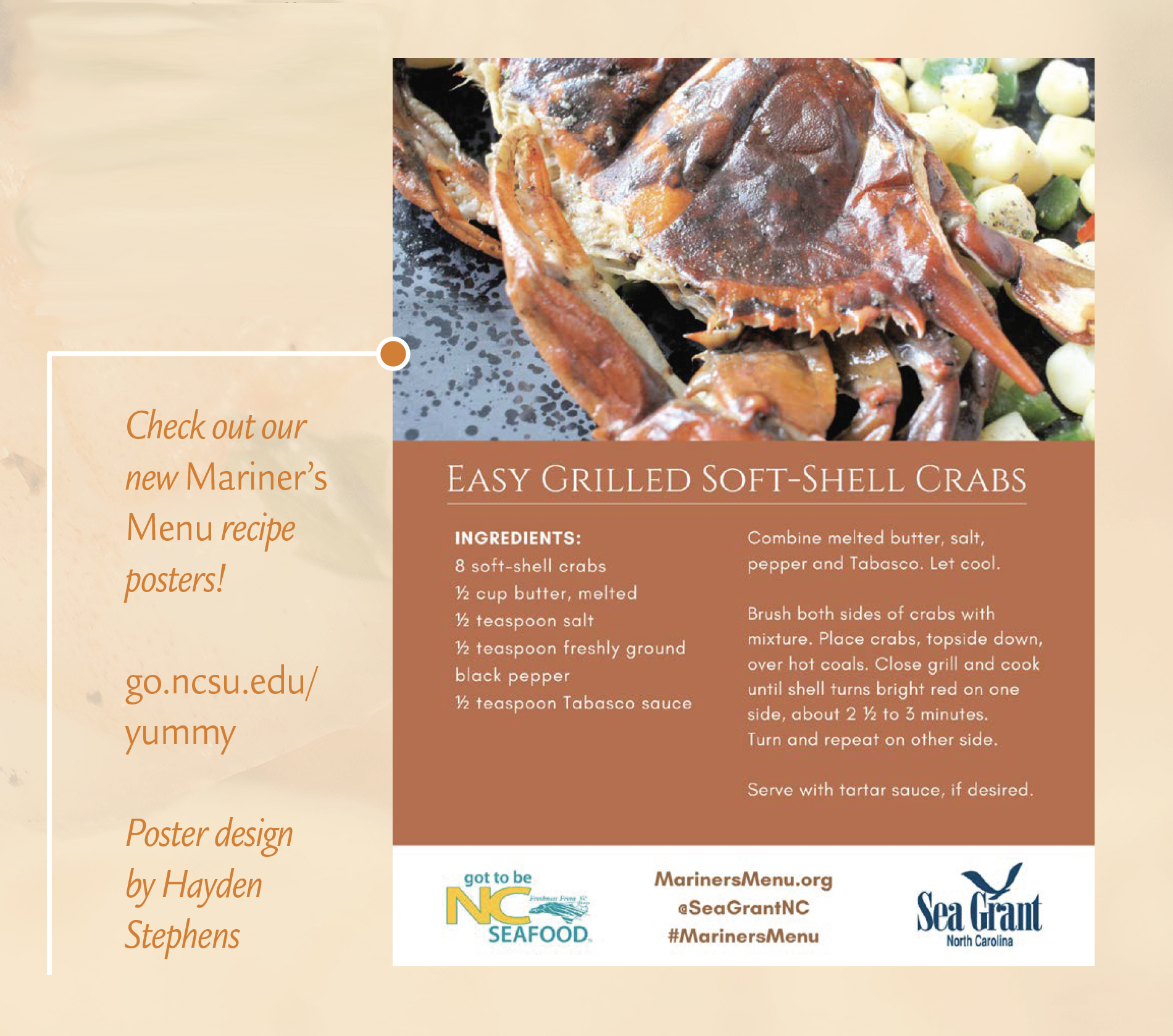Locals Seafood Delights Chefs and Consumers
North Carolina Sea Grant is partnering with the North Carolina Local Food Council to profile movers and shakers with stories about how and why local foods work. Read more about the NCLFC’s food champions here.
Meet Brendon Greene
If you’re looking for fresh seafood in the Triangle, one popular option is Locals Seafood.
Since 2010, the distributor has become one of the most trusted purveyors of North Carolina seafood in the Piedmont. After first noticing a lack of fresh N.C. seafood available in the Triangle compared to the coast, co-owners Ryan Speckman and Lin Peterson began selling shrimp out of a roadside cooler in Raleigh. They since have developed their business into a multifaceted operation that brings North Carolina wild-caught and aquaculture species to the Piedmont.

“Traditionally, no one has moved seafood from east to west,” says Brendon Greene, sales and operations manager for the distributor. “It has always gone from our coast up to the north. That’s just the way the supply chain has been structured.”
That north-south orientation of the supply chain benefited customers in Northeastern states, but often made it difficult to bring North Carolina seafood from our coast to restaurants and consumers further inland within the state.
“We saw opportunities to bring it to the Triangle and fill that gap,” Greene says. “Just like you might use a local farm, people come to us for their seafood. We have relationships down at the coast and are almost like a bridge.”
A North Carolina native, Greene started working for Locals in 2012, after learning about their work while spending time in the Outer Banks. At the time, he was a student at the University of North Carolina Chapel Hill and was spending one of his two semesters along the coast at the Institute of Marine Sciences and Coastal Studies Institute. When he returned to the Triangle, he continued working with the duo and hasn’t looked back since.
As part of his current job, Greene helps coordinate the process of sending Locals trucks to the coast to pick up the fresh products and bring them back to the Piedmont. To do so, Locals works primarily with family-owned fish houses and local fishmongers who report their catch back to Locals. Then, three to four times a week, Locals picks up the seafood at different locations along the coast, from the Northern Outer Banks down through Southport and Oak Island.
They then bring it back to Raleigh where products are “cut to order,” depending on customer demand. “It really is based on customer need and preference,” Greene says of how much they process the product before selling it.
Their seafood deliveries then go to a wide variety of Triangle locations — including farmers markets, restaurants and their new site at Transfer Company Food Hall. With restaurants alone, they count over 50 clients.
Forging and maintaining relationships — with fishing communities and customers inland — is vital. Both ends of the supply chain have to be flexible, as factors including weather, seasonal availability and ocean conditions all can affect the catch.vv
In fact, Greene says Locals’ selection changes every couple of days. “Just because we have something on Tuesday doesn’t mean we have it on Friday,” he says. “It’s a lot of folks coming in for one thing, not finding it, and then we’re trying to redirect them to the closest possible option.”
At the farmers’ market and food hall locations, team members often converse with customers to explain the benefits and challenges of cooking with N.C. seafood. Some North Carolina species are unfamiliar to consumers. More commonly known fish — like salmon and cod — aren’t found in North Carolina waters, but triggerfish, sheepshead and cape shark often are seasonally available here.
“It’s constant education,” Greene says. “Can you take something that these customers might not have seen before and possibly compare it to something they are accustomed to?”
Doing so helps customers learn how they can prepare their favorite meals, but with a different kind of fish. “It’s almost teaching cooking and handling methods too, because you can treat a lot of these fish the same way. It’s just getting customers comfortable with cooking seafood,” Greene adds.
When purchasing seafood from a store or restaurant, consumers should not be afraid to inquire about which waters produced it, Greene says, particularly if they want North Carolina seafood.
“You really have to ask where your seafood is coming from.”
For more, read “From Sea to Table to You” in the Spring 2019 issue of Coastwatch magazine.
photos courtesy of Locals Seafood
##
- Categories:
